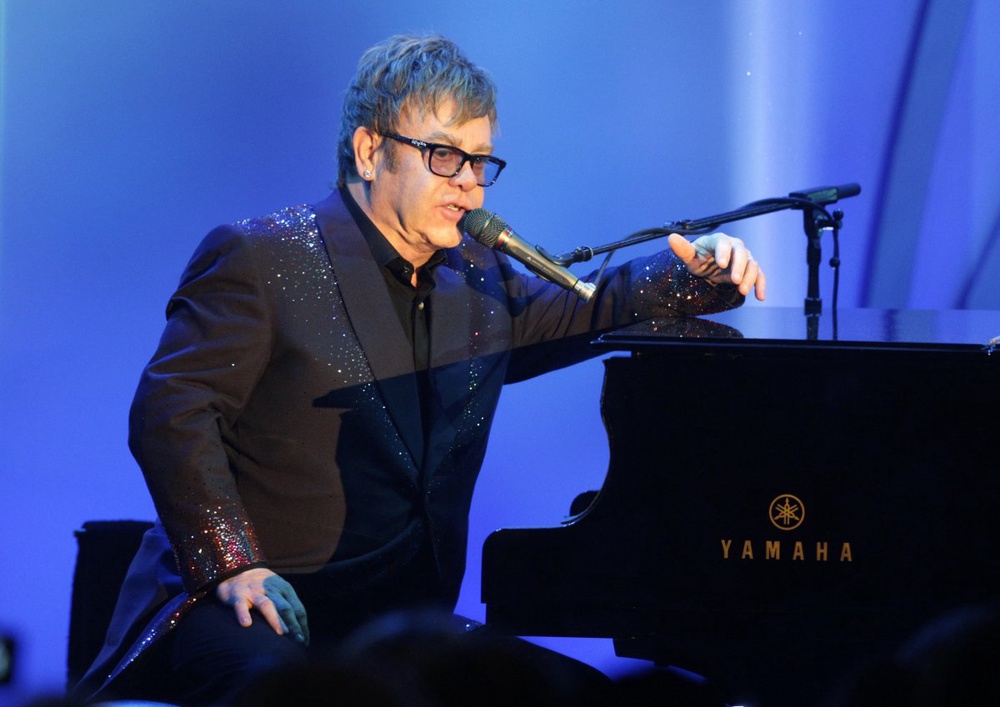
Former Polish president Aleksander Kwasniewski on Sunday called for drug decriminalisation at the opening of a global conference to curb the spread of HIV, with backing from the Elton John AIDS Foundation, AFP reports. The four-day conference in Vilnius focuses on "harm reduction" or programmes that seek to help intravenous drug users, one of the highest-risk population groups for the AIDS virus. "During my presidency, on the advice of various groups, I signed a law to criminalise the personal possession of drugs. I know it was a mistake," said Kwasniewski, now a member of a global commission for drug decriminalisation. "Decriminalisation is the way to proceed: people who use drugs receive the support they need and the police can keep attention on major crime," he added, to applause. The ex-president, a member of the Global Commission on Drug Policy, gave the example of Portugal, which decriminalised drug use in 2001. Health experts credit the move for contributing to a decline in drug addiction, as users are now forced to appear in front of special addiction panels rather than a criminal court. In an interview with AFP, British rock musician and AIDS campaigner Elton John spoke of government's role in fighting the HIV epidemic. "In the 1980s and 1990s, we saw HIV cut down hundreds of thousands of people while governments did nothing," he told AFP in an email exchange ahead of the conference. "It was clear then, and is still clear, that many governments don't value the lives of their own citizens because of needless stigma and criminalisation of drugs and sex," added John, who has in the past admitted to narcotics use. The International Harm Reduction Conference is taking place in the Lithuanian capital to shine light on an HIV hotspot: central and eastern Europe and central Asia, where there are more than 3.7 million injecting drug users, almost a quarter of the worldwide tally. Thirty-three percent of HIV diagnoses in Eastern Europe between 2006-2010 were linked to injecting drug use, according to a report by the World Bank, World Health Organisation and the London School of Hygiene and Tropical Medicine. The WHO's Martin Donoghoe said stigma was driving the HIV epidemic in Europe. "It is a vicious circle: social marginalisation increases the risk of being affected by HIV, and HIV exacerbates social marginalisation, adding another layer of stigma," he said at the conference. "Exclusion from life-saving HIV prevention, treatment and care is often the end result," said the programme manager for HIV/AIDS for the WHO in Europe. Popular Lithuanian singer Jurgis Didziulis added: "People who use drugs are written off. It will help to change mindsets."





Former Polish president Aleksander Kwasniewski on Sunday called for drug decriminalisation at the opening of a global conference to curb the spread of HIV, with backing from the Elton John AIDS Foundation, AFP reports.
The four-day conference in Vilnius focuses on "harm reduction" or programmes that seek to help intravenous drug users, one of the highest-risk population groups for the AIDS virus.
"During my presidency, on the advice of various groups, I signed a law to criminalise the personal possession of drugs. I know it was a mistake," said Kwasniewski, now a member of a global commission for drug decriminalisation.
"Decriminalisation is the way to proceed: people who use drugs receive the support they need and the police can keep attention on major crime," he added, to applause.
The ex-president, a member of the Global Commission on Drug Policy, gave the example of Portugal, which decriminalised drug use in 2001.
Health experts credit the move for contributing to a decline in drug addiction, as users are now forced to appear in front of special addiction panels rather than a criminal court.
In an interview with AFP, British rock musician and AIDS campaigner Elton John spoke of government's role in fighting the HIV epidemic.
"In the 1980s and 1990s, we saw HIV cut down hundreds of thousands of people while governments did nothing," he told AFP in an email exchange ahead of the conference.
"It was clear then, and is still clear, that many governments don't value the lives of their own citizens because of needless stigma and criminalisation of drugs and sex," added John, who has in the past admitted to narcotics use.
The International Harm Reduction Conference is taking place in the Lithuanian capital to shine light on an HIV hotspot: central and eastern Europe and central Asia, where there are more than 3.7 million injecting drug users, almost a quarter of the worldwide tally.
Thirty-three percent of HIV diagnoses in Eastern Europe between 2006-2010 were linked to injecting drug use, according to a report by the World Bank, World Health Organisation and the London School of Hygiene and Tropical Medicine.
The WHO's Martin Donoghoe said stigma was driving the HIV epidemic in Europe.
"It is a vicious circle: social marginalisation increases the risk of being affected by HIV, and HIV exacerbates social marginalisation, adding another layer of stigma," he said at the conference.
"Exclusion from life-saving HIV prevention, treatment and care is often the end result," said the programme manager for HIV/AIDS for the WHO in Europe.
Popular Lithuanian singer Jurgis Didziulis added: "People who use drugs are written off. It will help to change mindsets."


 +7 (777) 001 44 99
+7 (777) 001 44 99















































